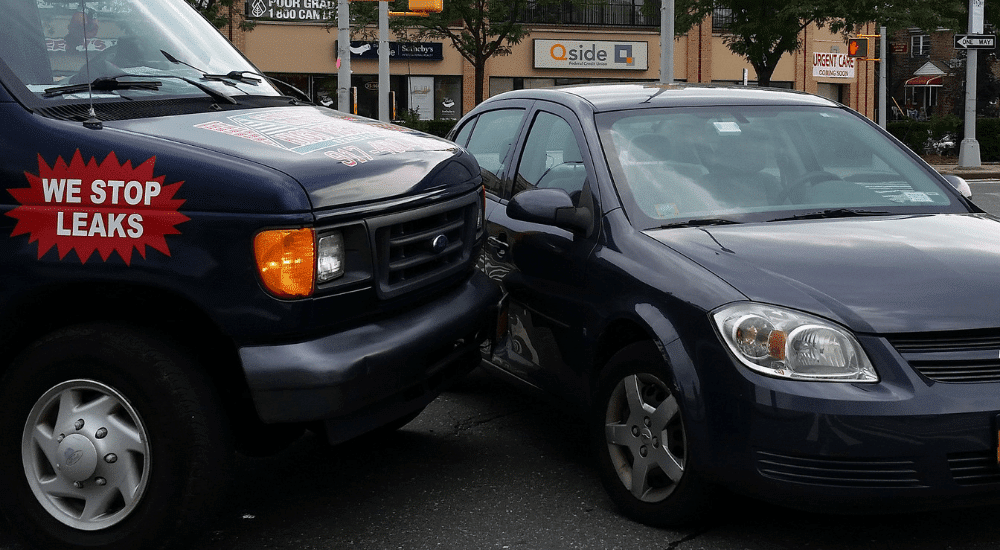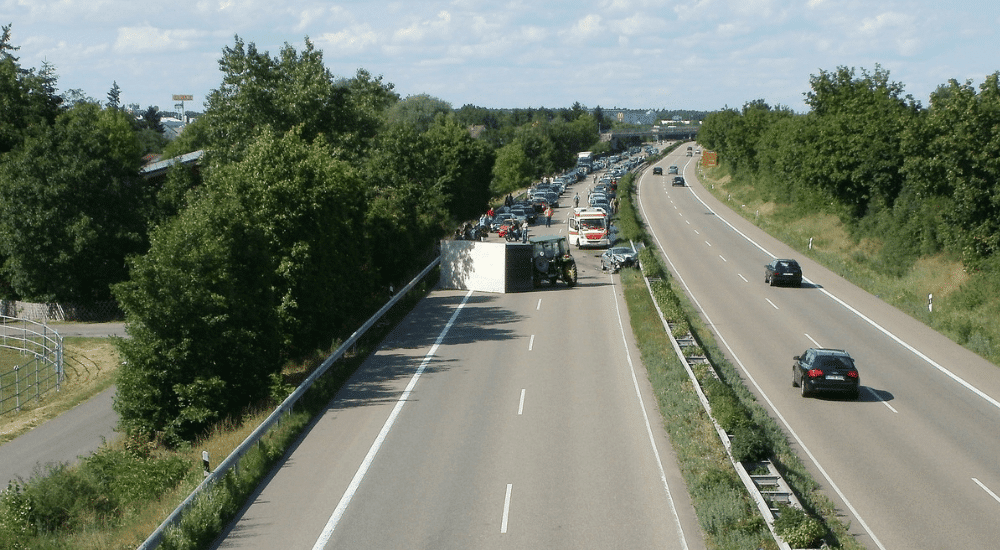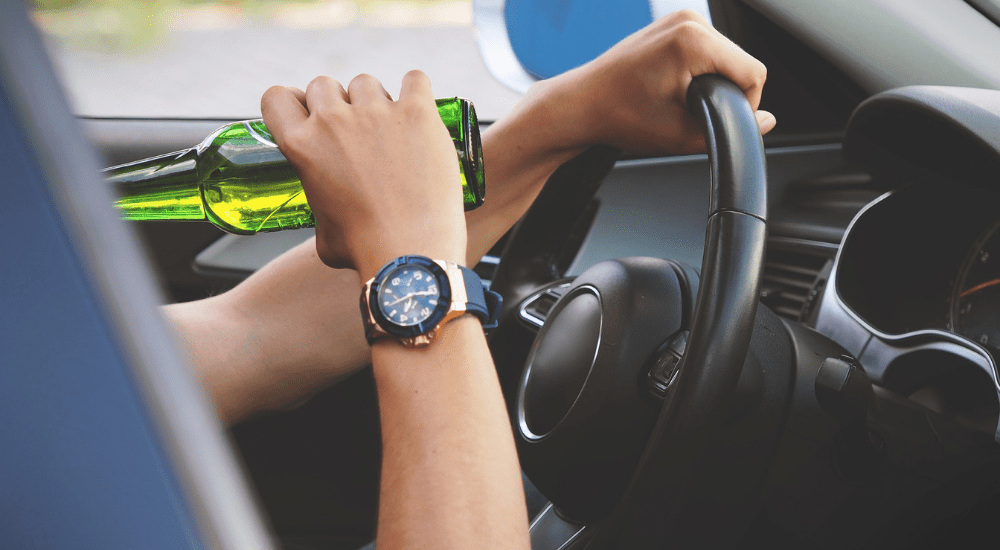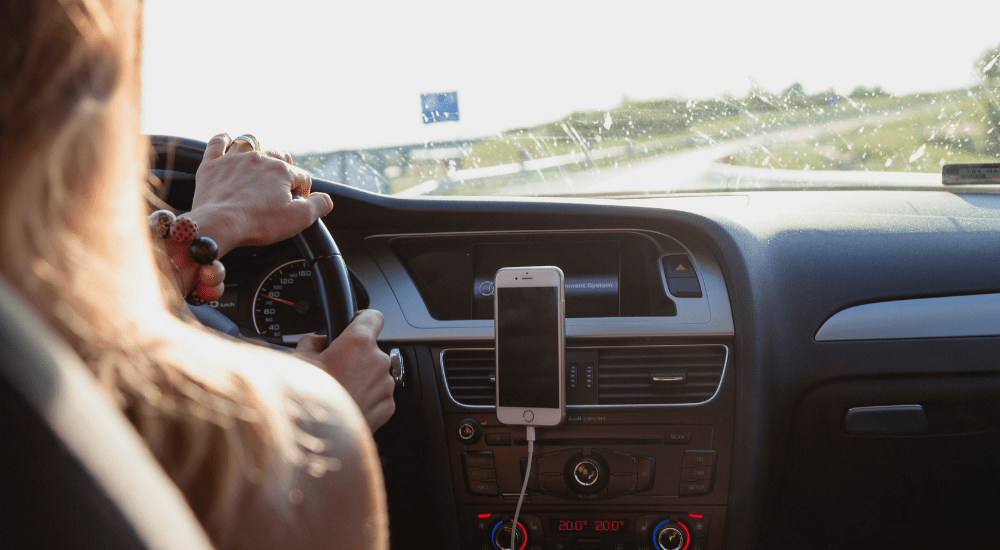Hit By a Company Vehicle: What Should I Do?
If you have been hit by a company vehicle, or someone you love was involved in a crash with one, you’re probably wondering what your rights are. What are your options for legal action and how can you attain the justice you deserve?
A company vehicle is any truck, bus, van, or car that is owned by a company and operated by employees or other agents of the company, usually in order to transport workers or passengers or to haul equipment or goods. Company vehicles are covered by commercial insurance policies rather than private ones, and they are subject to a specific set of roadway laws and legal requirements. Thus, an accident with this type of commercial vehicle is different from a regular car accident, and it is handled differently by both insurance agents and accident attorneys.
Because of the complicated set of laws, insurance coverage, and legal requirements for commercial and company vehicles, it can be a complex process to pursue damages for a victim of an accident involving this type of vehicle. Commercial insurance companies have extensive resources protecting their interests, including adjusters and attorneys who make every effort to avoid having to pay out damages after a crash. This is why if you have been hit by a company vehicle, or someone you love has been involved in an accident with one, it is of utmost importance to obtain representation by a knowledgeable and experienced commercial accident lawyer who knows how to go up against these companies and secure compensation for the losses and injuries sustained in a crash.
Crash With Employee Driving a Company Vehicle: What’s Next?
If you were involved in a crash with an employee driving a company vehicle, the crash may have been caused by drunk, distracted, or reckless driving; speeding; a poorly maintained vehicle; an improperly trained driver; or any number of other factors. A crash with a smaller-sized company vehicle, such as a sedan, can be just a fender-bender or it could cause extensive damage, including serious injuries and even death. A crash with a larger company vehicle—such as a large truck, van, or an 18-wheeler—can be catastrophic simply due to the size and weight of the vehicle involved in the crash.
Generally speaking, companies are considered to be responsible for their employees’ actions while the employees are “on the clock.” This means that when there is a crash involving a company vehicle, if the commercial vehicle driver was working at the time of the crash and is found to be at fault, the company that owns the vehicle and employs the driver will be held at least partially liable for damages.
This is why insurance adjusters and attorneys on both sides work hard to determine who was at fault after a crash involving a company vehicle. Often within hours of the accident, representatives for the company will be on the scene, looking at any possible evidence that might help reconstruct what happened. Victims and their families may be tempted to accept settlement offers in the immediate aftermath of an accident. In most cases, an experienced personal injury lawyer is a better resource to advise you on whether you have a case to recover additional damages, since accepting a settlement prematurely can make you ineligible for future compensation.
The parties who conduct investigations on behalf of their clients put heavy emphasis on the events leading up to the crash that may point to why and how the accident occurred. Once the facts of the accident are established, compensation for injuries, damaged property, or even loss of life can be established and rewarded. If negligence on the part of the driver was a factor in the crash, the driver may also be held liable for damages, along with the company that employs them.
Work-Related Car Accidents: Who Is Responsible?
When it comes to work-related car accidents, who is responsible is a pivotal question to answer, as determining who was at fault in the crash will affect decisions about who deserves compensation and who should pay out those damages.
The term “commercial vehicle” is broader than many people realize. It doesn’t apply only to big rigs, and it also doesn’t apply only to vehicles that are being operated for compensation. A commercial vehicle could be a flower delivery truck, a courier van, a complimentary airport shuttle or a vehicle that transports workers to and from a job site. To make matters even more complicated, not all commercial vehicle drivers are required to carry a commercial driver’s license, so a broad patchwork of laws and rules can apply in these situations.
When a crash occurs with a vehicle that is licensed to follow routes that cross state lines, there are particular legal criteria defining what is or is not considered a commercial vehicle. For an interstate vehicle to be considered a commercial vehicle, it must have a gross or combined vehicle weight of at least 10,001 pounds; it must have been designed or used to transport at least eight passengers, including the driver, in exchange for compensation, or at least 16 passengers, including the driver, not in exchange for compensation; and/or it must have been used to transport enough hazardous materials as to require a placard.
Within the state of Texas, the laws vary somewhat. According to state law, commercial vehicles must have a gross or combined vehicle rating of 26,001 pounds, not just 10,001—yet there are some significant exceptions to this. Tow trucks, for example, are defined as commercial vehicles regardless of weight, while farm vehicles qualify as commercial vehicles only if they weigh at least 48,000 pounds.
Anyone who drives a vehicle that fits the legal definition of a commercial vehicle can be considered a commercial vehicle driver, even if they are not required to carry a commercial driver’s license. This means they are subject to Federal Motor Carrier Safety Regulations regarding how to operate a commercial vehicle. For example, any commercial vehicle driver must have their vehicle inspected both before and after every trip, they must submit their vehicle to regularly scheduled maintenance checks, and they must comply with various legal requirements including limits on their hours of service.
If a crash occurs with a company vehicle driven by a driver who was not in compliance with these requirements, both the driver and the company that employs them may be held responsible for damages.
Accident in a Company Vehicle: Who Is at Fault?
When there is an accident in a company vehicle, the associated business is likely to be invested in avoiding financial responsibility for damages. Thus, the company’s team of attorneys and insurance adjusters will take a very close look at both the other drivers involved, as well as at the driver of the company vehicle, in order to determine whether anyone was doing something at the time of the crash that would indicate the responsibility for the crash was primarily theirs.
The most common causes of accidents involving company vehicles include:
- Distracted driving—those driving trucks who don’t follow or know cell phone laws for truck drivers, those who are eating while driving, or those who are engaging in any other activity that pulls their attention away from the road and inhibits their ability to drive safely and defensively.
- Speeding—drivers who operate company vehicles at speeds above the speed limit, or at speeds that exceed what is safe considering current weather and road conditions.
- Driving under the influence—a major cause of accidents involving all types of vehicles, but especially for drivers of company vehicles, because these drivers often feel pressure to meet quotas or time demands and thus rely on drugs or medications in order to stay awake on the road.
- Unsafe weather or road conditions—whether it’s rain, sleet, or roadway construction, unsafe driving conditions contribute to accidents with company vehicles.
Accident in Company Vehicle on Personal Time: Who Will Be Held Liable?
The issue of who is at fault in a car accident while operating a company vehicle on personal time is even more complex than that of an accident in a company car while the driver was “acting within the scope of employment”—meaning doing work-related duties at the time of the crash. In that case, the employer is often held responsible, since this party is seen as being responsible for employees’ actions while the employees are on company time.
An accident in a company vehicle on personal time, on the other hand, is not quite as straightforward. The short answer is that even in accidents that happen when an employee is driving a company vehicle for personal use or on personal time, the company could still be held responsible for paying damages to accident victims. The driver is likely to be held responsible, but the company might still be found responsible for their employee’s actions, even if that employee was off-duty when the accident occurred.
Slack Davis Sanger Can Advocate For Victims of Serious Accidents and Their Families
If you have been hit by a company vehicle, or someone you love has been involved in a crash with a company vehicle, time is of the essence. The company that owns the vehicle and employs the driver is almost certain to have its lawyers and insurance agents on the job within hours in order to minimize risk for the company. For this reason, you should call the attorneys at Slack Davis Sanger as soon as possible to discuss whether or not you have a solid claim. At Slack Davis Sanger, we are passionate advocates for passenger safety, and we bring decades of experience and deep knowledge of commercial vehicle laws, along with a proven track record. We work diligently to help our clients receive the compensation and justice they deserve.

The firm handles cases involving catastrophic personal injuries and deaths. Our work spans three decades of handling airplane and helicopter crashes, truck and car accidents, oilfield and construction accidents, and other devastating accidents. We try lawsuits throughout the country in both federal and state courts and have recovered hundreds of millions of dollars for our clients. To date, we have handled or tried cases in 47 states, read more about our attorneys and firm.




